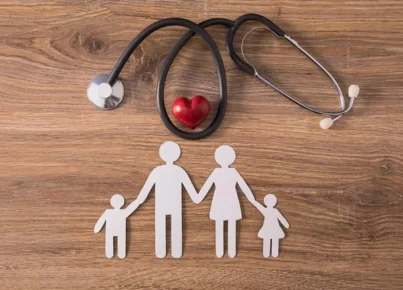In today’s interconnected world, it is impossible to deny the impact our actions have on others. The ongoing global health crisis has brought to light the importance of our collective responsibility for each other’s well-being. From a public health perspective, are we responsible for each other’s health? Let us dive into the various aspects of this intriguing question.
Community Health: A Shared Responsibility
From an ethical standpoint, prioritizing collective health is essential to creating a flourishing society. In many ways, an individual’s decision to adopt healthy behaviors not only contributes to their personal well-being but also impacts those around them. It is also important to recognize how societal structures influence individuals’ access to resources necessary for maintaining good health.
Practices like vaccination, wearing masks during a pandemic, and maintaining hygiene standards in public spaces are practical examples of how individuals can contribute positively to communal health. Furthermore, participating in community-based initiatives that promote preventative care and support vulnerable populations is another crucial aspect of fostering a collective responsibility culture.
Public Policies and Healthcare Systems
Governments and healthcare systems play a critical role in designing policies that advocate for equitable access to healthcare and encourage healthy lifestyles among citizens. By investing in infrastructure that supports universal healthcare and social determinants of health—such as housing, education, and employment—they create opportunities for individuals to prioritize their well-being.
As citizens, supporting leadership that acknowledges this shared responsibility can directly influence policy changes that benefit all members of society.
Psychosocial Well-being: Empathy as a Building Block
Empathy can be viewed as the foundation of shared responsibility in health. When we consider how our actions may affect others around us—whether on an individual or community level—we foster a sense of connectedness that encourages respectful behavior and proactive health measures.
By actively working to destigmatize mental illness and support mental health initiatives within our communities, we help create environments where it is possible for everyone to prioritize their psychosocial well-being.
In Conclusion
The concept of shared responsibility for each other’s health is complex, as it involves a myriad of social, political, and personal factors. However, it is essential to recognize that cooperative efforts have the potential to create a positive impact on the well-being of entire communities.
Ultimately, realizing both individual and collective well-being depends on the acknowledgment and cultivation of mutual responsibility towards each other’s health. By supporting public health initiatives, advocating for policies that prioritize well-being, and emphasizing empathy in our everyday interactions, we can create a more inclusive and vibrant society where everyone can thrive.





